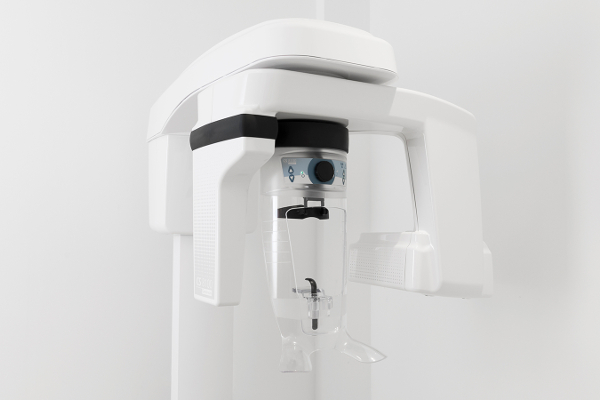
With a jaw CT scan, also known as a Dental Scan or CBCT, the dentist obtains detailed 3D information, unlike the 2D images from a standard panoramic x-ray.
The scan is completed in just a few seconds.
Patients do not need to enter a closed chamber as the scanner is open and adjustable in height, making it accessible to everyone, including those with special needs.
A CT scan is a valuable diagnostic tool for the dentist, helping to develop the appropriate treatment plan.
The dentist receives information about the number and position of dental implants, the need for bone regeneration, jaw bone density, location of the alveolar nerve and sinus, and creation of a surgical guide for implant placement.
Diagnosis of fractures, position of impacted teeth, root resorption, wisdom tooth positioning, supernumerary teeth, and the location and size of cysts.
Diagnosis of the number and position of tooth roots for more effective treatment.
Identification and diagnosis of lesions, accurate assessment of extent and location.